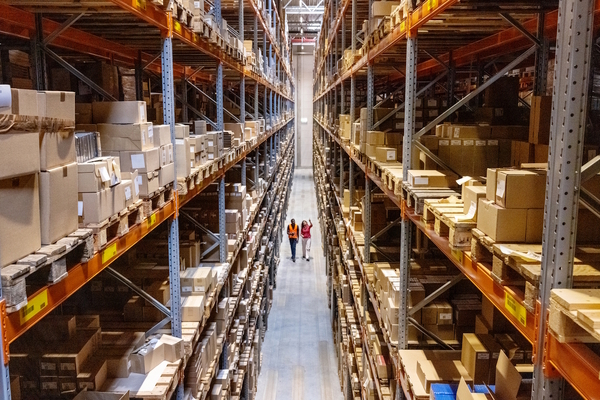Sustainability and digital transformation

Laura Martin at Conga reimagines business in 2024 and predicts that it will be driven by a combination of technology transformation and sustainability
Sustainability has become a top concern for business leaders, their customers and employees – with many turning to technology to help them navigate new financial regulations, standards and practices.
This was highlighted in the recent 28th annual United Nations (UN) climate conference, where new targets were set for the Global Goal on Adaptation (GGA) and its framework for a ‘new collective quantified goal on climate finance.’ In his closing speech, UN Climate Change Executive Secretary, Simon Stiell, urged businesses to take their sustainability initiatives more seriously and consider new technology.
Similarly, at the 2024 World Economic Forum’s (WEF) Annual Meeting in Davos, Switzerland, Gim Huay Neo, Managing Director of World Economic Forum Geneva, and other experts urged companies to consider ‘regeneration’ in their quest to being a sustainable business.
According to a blog published by the WEF, regenerative companies are typically more self-reflexive, open to making smaller changes over time to improve their sustainability efforts, whilst optimising their overall business performance.
It’s these enterprises that will review their operational model and adopt the latest technologies to better connect and streamline their operations, embracing a combination of digital transformation and sustainability initiatives. However, this is no easy feat.
Digital transformation and sustainability
Previously, enterprises would consider digital transformation and their revenue operations (RevOps) as separate from their sustainability goals.
However, over time, leaders have gradually realised that sustainability can lead to revenue gains. In fact, Gartner research found that more and more CIOs and IT executives have found sustainability goes hand in hand with commercial success, as it can provide leaders with the opportunity to optimise and scale their operations and explore new ways of working.
The same report indicated that both enterprises and their customers now consider sustainability a business priority and this is reflected in their purchasing decisions.
This clearly shows that businesses are now not only doing more for the environment, but they are also starting to see these initiatives as opportunities for revenue growth. According to an analysis by Kearney, a global managing consulting firm, more companies need to review their operational cycle.
By being more self-reflective and considering sustainability as part of their broader business strategy, rather than siloed, companies have far more visibility and control over their data. Teams can identify inefficient processes and areas of improvements, and enterprises can make more changes over time that not only improve their sustainability, but overall business performance, ultimately driving more revenue.
Many businesses have already started to embrace more sustainable practices, such as digital documents, e-signatures and even migrating their operations to cloud-based platforms. It has taken a while, but leaders have slowly realised the benefits of digital transformation and how it can help drive their sustainability efforts. It can streamline operations and remove unnecessary processes, leading to reduced energy or unnecessary waste and better resource utilisation.
Digital transformation also provides teams with far more visibility of their day-to-day business operations and where processes could be improved or refined, making it is easier to track and improve sustainability measures.
Teams can identify new avenues for product and process innovations that are environmentally friendly and sustainable, which ultimately brings in more business. After all, customers are now far more aware of the environmental and ethical impacts of their chosen provider and their products, and they have their own sustainability targets to contend with as well.
Other examples include cloud-based enterprise resource planning (ERP) systems. With increased digitisation, supply chain leaders can gain valuable insights into their operations, optimising performance and efficiency.
However, this also improves coordination in demand and supply, helping to minimise waste and unnecessary recalls whilst over time allowing suppliers to better track, report and mitigate their carbon footprint. In this case, adopting more digital tools and addressing operational inefficiencies contributes to lower overall energy consumption.
An effective sustainability strategy
Digital transformation and sustainability are essentially linked; they should be treated as one and the same and completed in tandem. However, to become a truly sustainable enterprise requires a fundamental redesign of systems and processes.
For either of these programmes to work, leaders need to take a step back and review how they operate on a daily basis. It is important that they think about how to integrate these considerations and policies within their core business logic and identify which technologies will help them to achieve these goals.
As companies continue to invest more in solutions, they need to match technology with clear business objectives and sustainability goals. To do this, leaders should establish a sustainable technology framework; one that outlines key areas of improvement in how they deliver their services, any unnecessary processes and ensures that they are maximising their own energy and materials efficiency.
Most importantly, sustainability, much like digital transformation, needs to be treated as a continuous journey; it cannot be rushed. Companies should try to simplify or refine one critical business process at a time, which will in turn, reveal another area of improvement or inefficient energy use, and so on. Overtime, they will streamline their operations and drive a more efficient way of working.
The future of business is digital
By committing to a digital transformation programme, companies are in a better position to adapt to their customers’ needs and the changing market. At the same time, transitioning to a low-carbon economy will rely heavily on digital innovations. So, enterprises need to be smarter and think about better ways of combining their technology and sustainability goals and identifying greener business practices. Leaders need to rethink how they operate and establish sustainability goals which technology can assist with.
To return to the idea of ‘regeneration,’ more digitally mature companies have been found to be 26 percent more profitable than their peers. That is because all data is being utilised effectively and teams can also establish far better workflows that free up resources for higher value activities.
There’s no reason that these initiatives cannot be sustainable; they can still be profitable and sustainable by-design.
Laura Martin is customer success director at Conga
Main image courtesy of iStockPhoto.com and metamorworks

Business Reporter Team
Most Viewed
Winston House, 3rd Floor, Units 306-309, 2-4 Dollis Park, London, N3 1HF
23-29 Hendon Lane, London, N3 1RT
020 8349 4363
© 2025, Lyonsdown Limited. Business Reporter® is a registered trademark of Lyonsdown Ltd. VAT registration number: 830519543





